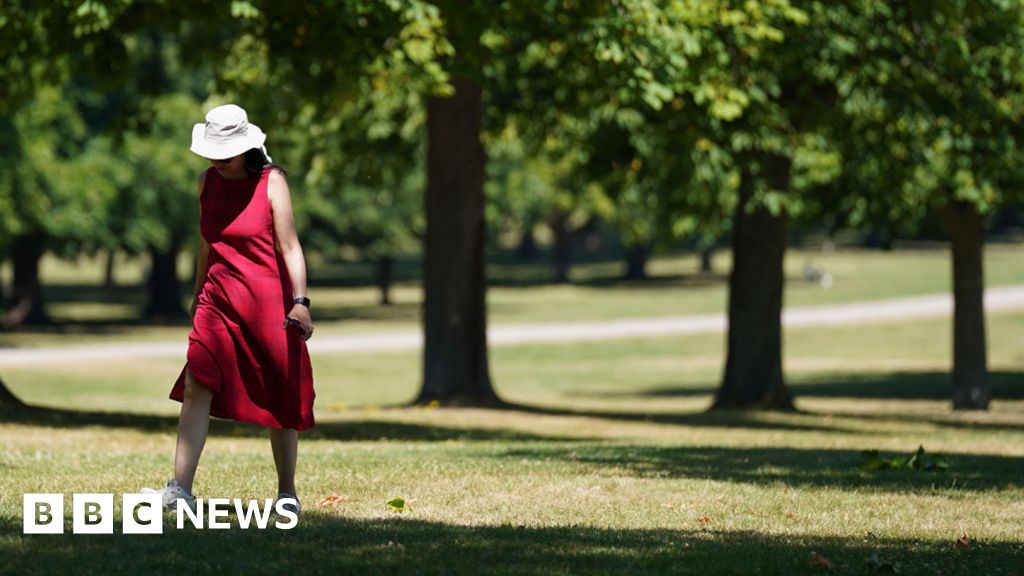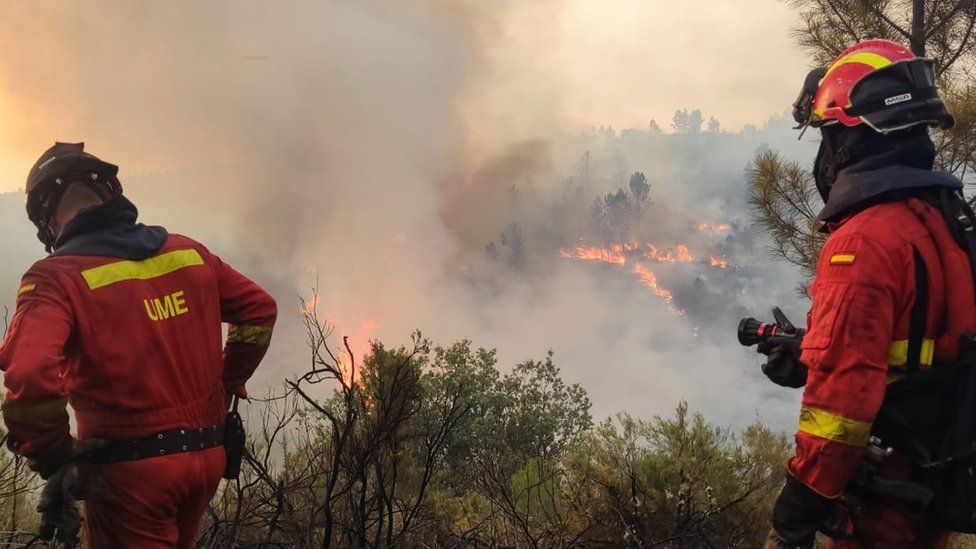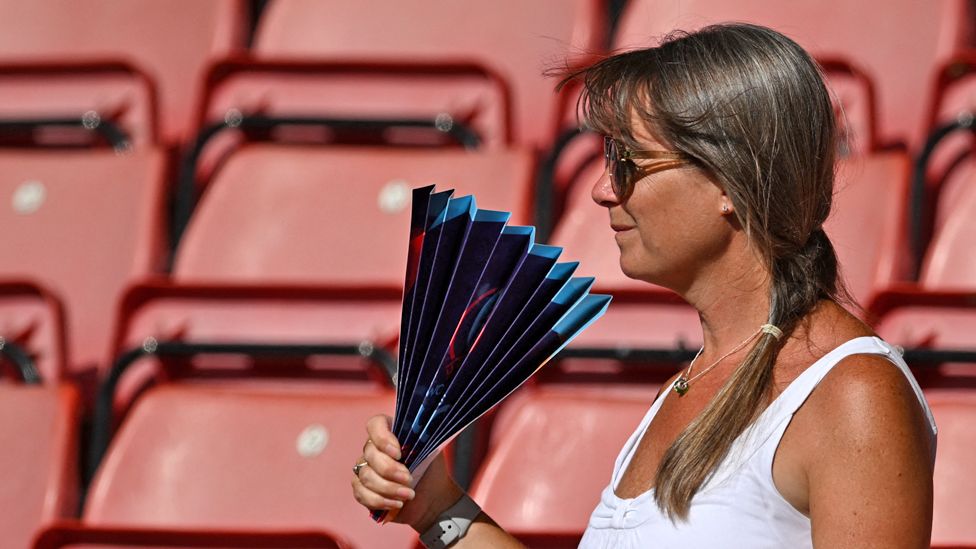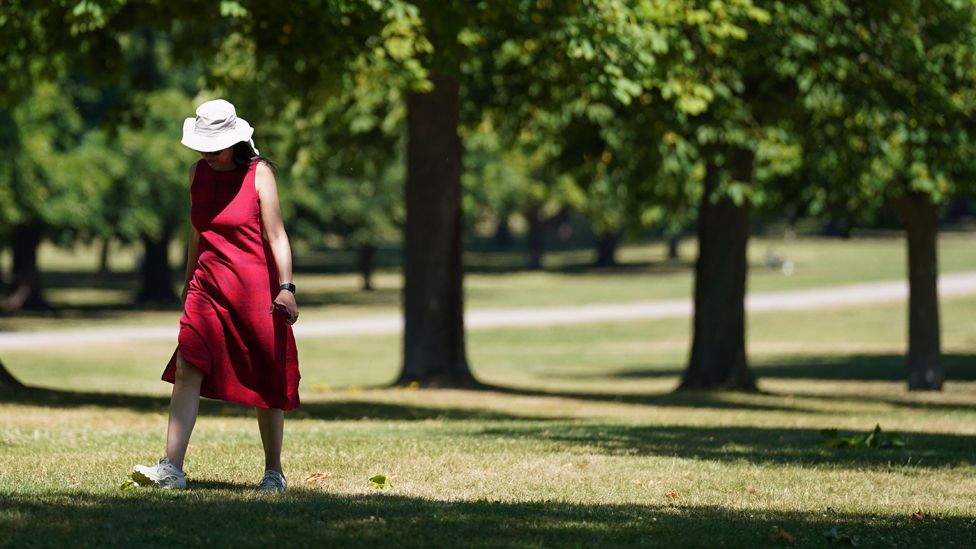 PA Media
PA MediaA national emergency has been declared after a red extreme heat warning was issued for the first time, as temperatures could hit 40C (104F).
The Met Office’s highest warning, meaning there is a risk to life, covers an area including London, Manchester and York on Monday and Tuesday.
The UK Health Security Agency has also issued its highest level four heat alert to health and care bodies.
It warned illness and death could occur “among the fit and healthy”.
Downing Street said the alert was being treated as a national emergency, with officials continuing to meet on Friday and over the weekend to discuss the response.
It is the first time a red heat warning has been issued for parts of the UK, although the extreme heat warning system was only introduced in 2021.
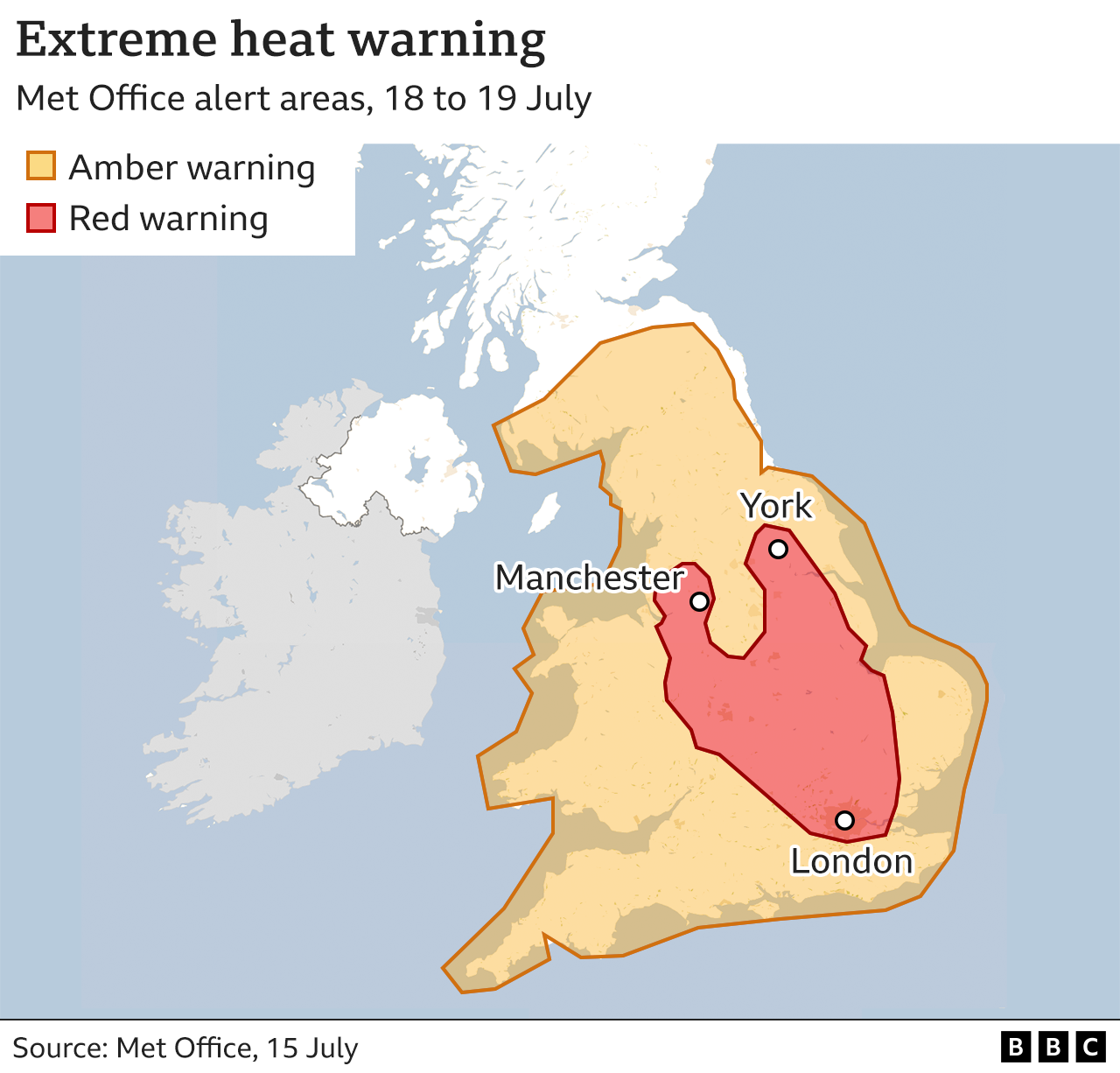
The Met Office red warning means:
- Population-wide adverse health effects, not limited to those most vulnerable to extreme heat, leading to serious illness or danger to life
- Substantial changes in working practices and daily routines will be needed
- A high risk of failure of heat-sensitive equipment, potentially leading to localised loss of power and other essential services
- More people visiting coastal areas, lakes and rivers, leading to an increased risk of water safety incidents
- Delays on roads and road closures, along with delays and cancellations to rail and air travel.
As well as the red warning an amber warning will be in place across most of England on Sunday and all of England, Wales and the south of Scotland on Monday and Tuesday.
This video can not be played
To play this video you need to enable JavaScript in your browser.
The weather at the start of next week is forecast to be warm across the UK but temperatures will be more like 30C in Scotland and Northern Ireland, rather than the high 30s predicted in parts of England and Wales.
The Met Office said the hot weather was caused by high pressure over the UK and hot air flowing from southern Europe.
A heatwave spreading across Europe has fuelled wildfires in Portugal, France and Spain.
Met Office spokesman Grahame Madge said it was “potentially a very serious situation” with a 50% chance of temperatures reaching 40C somewhere in the UK – likely along the A1 corridor.
BBC Weather presenter Matt Taylor said there was an “increasing likelihood” the UK record high would be broken.
The highest recorded temperature in the UK was 38.7C in Cambridge in 2019.
Mr Taylor said while it was not guaranteed, it was the first time there had been a realistic possibility of hitting 40C in the UK.
“That is exceptionally hot, the sort of temperatures that if you are on holiday you may be able to deal with but in day-to-day life it can have severe impacts on health and we are likely to see impacts on transport and power next week as well,” he said.
Night-time temperatures in some areas will not drop below 25C, he said, adding that things were likely to start cooling off from Wednesday.
Met Office CEO Penny Endersby said the extreme heat being forecast was “absolutely unprecedented” and she urged people to take the warning as seriously as a red or amber warning for snow or wind.
People in the UK are used to treating hot weather as a “chance to go and play in the sun” but “this is not that sort of weather”, she said.
“Our lifestyles and our infrastructure are not adapted to what is coming.”
This video can not be played
To play this video you need to enable JavaScript in your browser.
People are being urged to stay hydrated, look out for vulnerable people, keep curtains closed and stay out of the sun in the middle of the day.
There have been concerns about pressure on the NHS during the extreme weather and the UKHSA upgraded its health heat alert level to four on Friday.
Level four is reached when a heatwave is so severe or prolonged that its effects extend outside health and social care system, such as power or water shortages.
Downing Street said contingency plans were in place and the prime minister continued to be kept up to date with the situation.
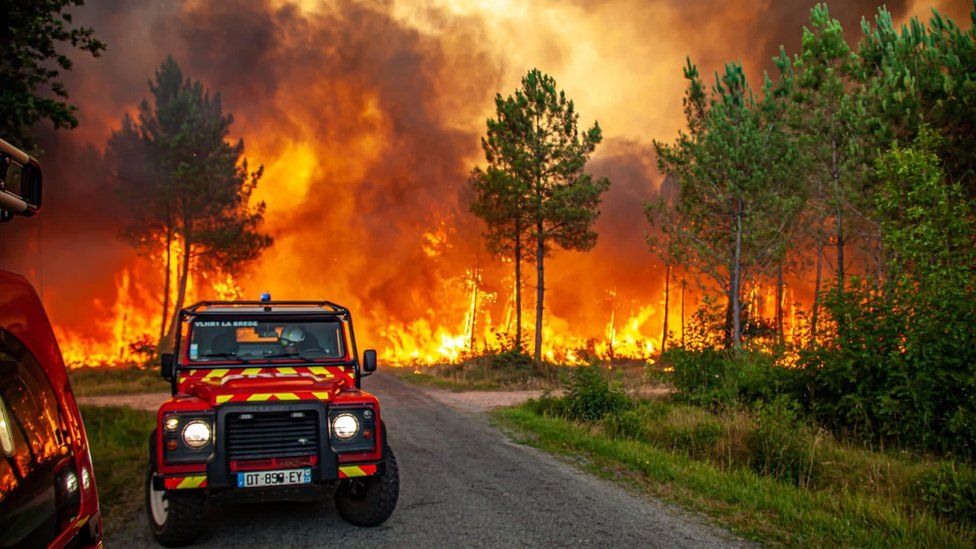
The world has already warmed by about 1.1C since the latter half of the 18th century, and experts predict that temperatures will keep rising unless governments make steep cuts to emissions.
Seven of the top 10 hottest days recorded in the UK have been since 2003, Mr Taylor said.
“We only broke the temperature record three years ago, temperature records are not there to be broken so regularly and so there are concerns that a warming planet will see this sort of thing happen more often.”
In England, there were 2,500 excess deaths in the summer of 2020 due to hot weather, and the Red Cross predicts that heat-related deaths in the UK could treble in 30 years.
The latest heatwave has brought warnings of disruption to travel with rail firm Avanti West Coast tweeting that weekend services might be cancelled at short notice, with amended timetables and extended journey times expected on Monday and Tuesday.
Network Rail has said blanket speed restrictions are likely on the majority of lines with staff preparing to “keep services running safely and reliably for passengers” amid the heat.
And the RAC is predicting the number of drivers needing help on Monday and Tuesday will be 15-20% higher than normal for mid-July as cars overheat.
Road gritters have also been used in some areas to reduce the chances of roads melting by spreading sand.
Some schools across England plan to close early next week, allowing pupils to wear PE kit and rescheduling sports days.
Animal charity Blue Cross wants people to look out for signs their pets are suffering heatstroke, which include collapsing, excessive panting, and dribbling.
People are advised to walk pets when it is coolest, provide shade for horses and smaller animals such as rabbits and ensure they have a constant supply of cool water.

How are you coping in the heat? Share your experiences haveyoursay@bbc.co.uk.
Please include a contact number if you are willing to speak to a BBC journalist. You can also get in touch in the following ways:
- WhatsApp: +44 7756 165803
- Tweet: @BBC_HaveYourSay
- Upload pictures or video
- Please read our terms & conditions and privacy policy
If you are reading this page and can’t see the form you will need to visit the mobile version of the BBC website to submit your question or comment or you can email us at HaveYourSay@bbc.co.uk. Please include your name, age and location with any submission.
-
-
3 days ago

-
-
-
16 June

-
-
-
7 days ago
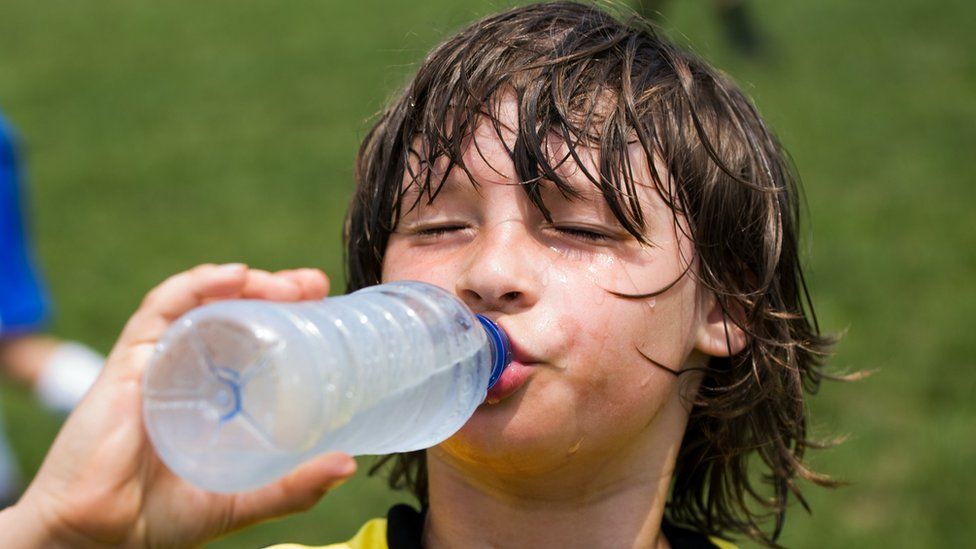
-
